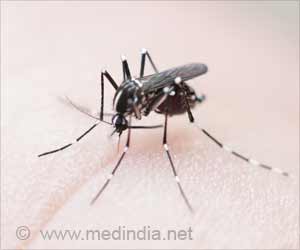A dengue epidemic sweeping Brazil's state of Rio de Janeiro since the beginning of this year has cast a harsh spotlight on the pitiful situation in public hospitals, where doctors
The dengue epidemic sweeping Rio de Janeiro since the start of the year highlights the poor public health system in Brazil where doctors are scarce, but patients are plentiful.
Since the beginning of January, 67 people have died from the mosquito-borne tropical disease and more than 57,000 others have been infected.Most of the victims were in the city of Rio, most were from its poor western neighborhoods -- and most of the fatalities were children.
The state secretary in charge of health, Sergio Cortes, this week called for pediatricians as well as disease specialists and generalist doctors to come in from other states to help with the massive influx of people needing treatment.
Rio de Janeiro medical services have been swamped by the number of people showing the high fever and head and body aches symptomatic of dengue fever. In extreme cases -- around one percent of patients -- the disease can turn deadly, causing hemorrhage.
Cortes said he could even appeal on Sunday to Cuban doctors, recognized throughout Latin America for their training, to assist. Medical teams from the communist island last helped out against dengue in Rio in 1987.
In Rio, the malady has become a source of preoccupation for much of the 10-million-strong population, especially those living in the slums, or favelas, where sanitation is poor and pools of stagnant water provide ideal breeding grounds for the Aedes aegypti mosquitos responsible.
Advertisement
More than 1,200 soldiers have also been deployed to treat those infected and eradicate suspected mosquito colonies.
Advertisement
Authorities have ordered 145 clinics in Rio to stay open 24 hours a day, all week, but the reality was that many were unable to do so.
The city's health official, Jacob Kligerman, admitted that "right now" he did not have the staff at his disposal to ensure that demand would be met -- "even if we raise the consulting fee for the 900 health care professionals."
The majority would have only have limited operating hours on weekends, with just over 10 percent open on Sundays, he said, adding that the city had a shortfall of 500 doctors.
According to the regional medical council, Rio has the biggest number of doctors after the capital Brasilia, with 44,980 registered. More than two out of three were involved in the public medical networks.
Council president Marcia Araujo said, however, that poor pay had prompted 62 percent of those in public practice to give up their posts.
The call for doctors out of state showed a "lack of respect for local professionals," she said, adding: "If they (the authorities) offered better-paid jobs to the professionals here, they would save in terms of travel and lodgings for the imported doctors."
Source-AFP
RAS/L










